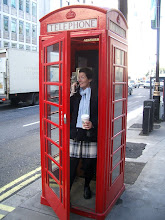I know it’s monsoon season because something’s beeping in my office again. You know the drill – you’re plodding along doing your work on your computer when - *crack* - a bolt of lightning strikes nearby and in a split second your screen goes black. Unless you’ve recently saved your work – you’ve probably lost everything. Worst case, you may have taken a direct hit and fried something electrical that renders your machine a giant paperweight. And lest you think that lightning seeks out desktops and PCs exclusively - your firewall, TV, phones, and other appliances are at risk as well. So what to do?
First, let’s make sure we’re on the same page by describing the two primary categories of prevention: electrical protection (most often branded as “surge protection” and back-up power sources (most often sold as UPS or uninterruptible power supply). In business, you should skip the surge protection and go for a UPS that includes both surge suppression and backup power in a single device. Filter boards, fancy power strips, extension cords and the like are cheap, but not worth your time spent crawling around under the desk to get them plugged in. At home, I might concede you could get away with less – but again, why would you? The savings is not substantial while the difference in risk is significant.
Next, realize there is NO guaranteed solution. Once you’re OK with that knowledge, it now becomes a matter of understanding all the vulnerabilities. While most of us realize that electrical power is at risk, most of us forget that the phone line (not just the dial-up Internet dinosaurs; think about your TiVo or your satellite dish), the coax cable (like supplied by Cox and Comcast, Ethernet cable and basically any other wiring that is a connected to a device, can transform into an express lane for destructive electrical impulses.
The best solution is the one that balances your comfort level with the risks compared to the price of protection. In general, I recommend that you purchase a UPS that will provide some level of power conditioning. The price of a UPS is dependent upon the amount of stuff plugged into it and the amount of time you expect the backup battery to power all that stuff. The more power your devices consume and the longer you try to run them, the more expensive the UPS. Consider buying one with data protection built-in. This allows you plug your phone line into the unit, providing an additional barrier of protection. There are even models that have coax, Ethernet, and phone line in one unit.
If you’re using a single PC or a couple laptops and a PC, you probably can get away with a couple units total. If you’ve got a server – buy a dedicated UPS specially designed to handle that type of power load. And spring for the “auto-shutdown” option which, when installed correctly, will use those extra 10 mins of battery power to shut down your server (and all its delicate databases) safely.
Last but not least, update your insurance policy to reflect the latest investments you’ve made in equipment, make frequent backups of your data and don’t forget to save often!
(Just want me to quote the perfect one for you? Email me with details: info@nextrio.com)
Friday, July 11, 2008
Subscribe to:
Post Comments (Atom)

No comments:
Post a Comment